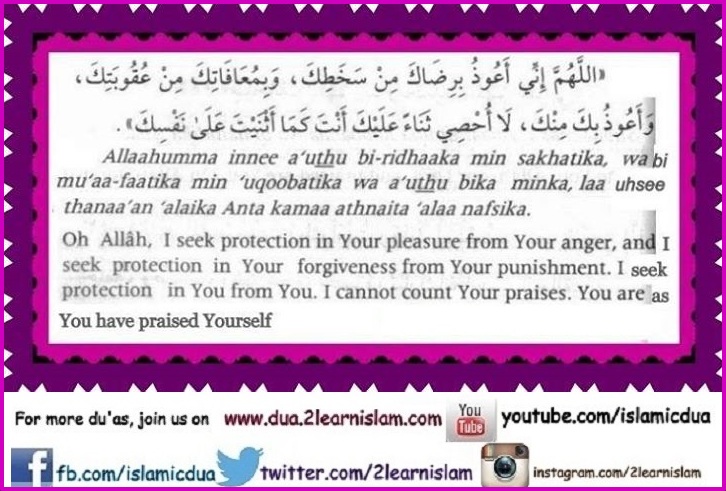Put your hand on the place where you feel pain and say
بِسْمِ اللهِ
Bismillaah(three times)
In the Name of Allah
Then say
أَعُوذُ باللهِ وَقُدْرَتِهِ مَنْ شَرِّ مَا أَجِدُ وَأُحَاذِرُ
‘A’oothu billaahi wa qudratihi min sharri maa ‘ajidu wa ‘uhaathiru.
I seek refuge in Allah and in His Power from the evil of what I find and of what I guard against.
Click here to get 30% Ramadan discount on our best selling dua book.
Muslim
| Transliteration | Translation | Arabic |
|---|---|---|
| Bismillaah | In the Name of Allah | بِسْمِ اللهِ |
| ‘A’oothu | I seek refuge | أَعُوذُ |
| billaahi | in Allah | باللهِ |
| wa qudratihi | and in His Power | وَقُدْرَتِهِ |
| min | from | مَنْ |
| sharri | the evil | شَرِّ |
| maa | of | مَا |
| ‘ajidu | what I find | أَجِدُ |
| wa ‘uhaathiru | and of what I guard against | وَأُحَاذِرُ |



